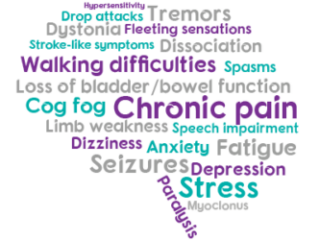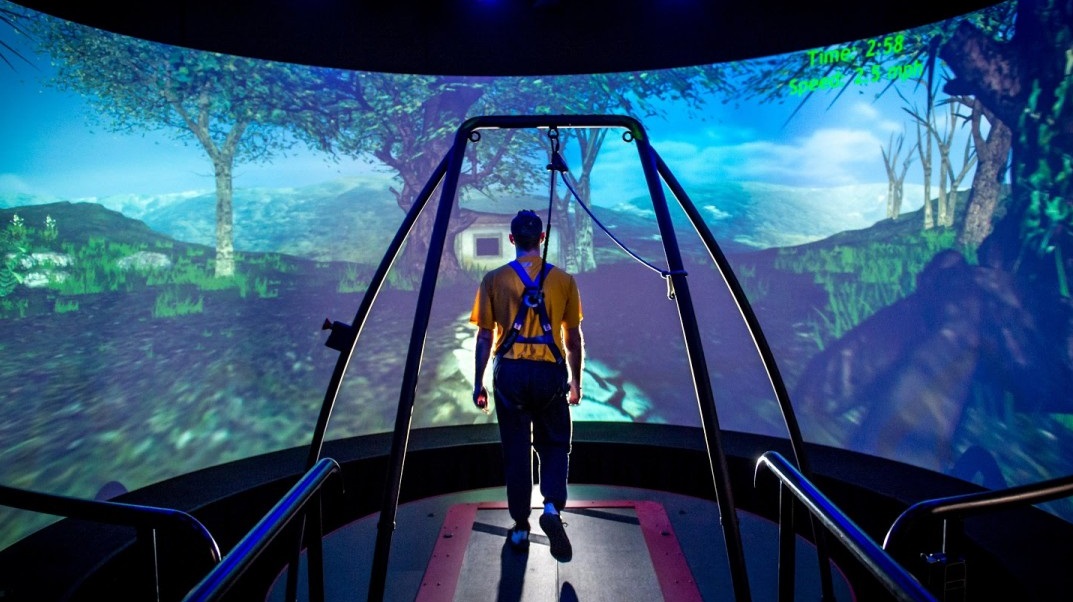
Functional neurological disorder – what does this mean for me?
Functional Neurological Disorder (FND) is becoming a more frequently seen condition in neurology and epilepsy clinics and it is a condition which people refer themselves to Neurotherapy Worx for advice and support. There is little knowledge of this very varied condition, compared with other neurological conditions and some specialists have had little experience in this area. No one person is affected in the same way, although there are some similar characteristics between people.
Functional Neurological Disorder (FND) is a brain network disorder that can encompass a diverse range of neurological symptoms, including limb weakness, paralysis, seizures, walking difficulties, spasms, twitching, sensory issues and more. Anyone of any age can receive the diagnosis. For many, symptoms are severe, disabling, and life-changing. (FNDAction.org.uk)

The basic wiring of the nervous system is intact, but there is a problem with how the brain/nervous system is “functioning”, and how the brain fails to send and/or receive signals (messages) correctly. This impacts how the body responds to different tasks, such as movement control and attention. (FNDAction.org.uk)
Evidence is growing that Neuro-physiotherapy can be the most effective treatment for those who have movement or motor symptoms such as weakness and walking difficulties. This type of therapy focuses on regaining normal function, aka retraining the brain, rather than being focused on exercise. (FNDAction.org.uk)
One of my clients, Jennifer Hull, recently completed a course of physiotherapy over a period of 6 months. This initially included weekly sessions within her own home and then we started to introduce hydrotherapy. It was initially to look at improving her mobility and independence. She is now walking around her own home and her community; she has started cooking family meals again and started to play her piano again. Her long-term goal was to be actively involved in her son’s wedding in 2024, not to use her wheelchair and to feel comfortable in wearing a short-sleeved dress at the wedding after losing so much body weight and tolerance for physical activity. This is the next phase of her rehabilitation to push her into the next level and towards her pre-FND physical levels of activity.
During the rehabilitation process, Jennifer has not only been extremely engaged in the sessions she has been daily following the exercise plan, when possible, she has been more actively involved in family life but also pacing herself between exercise, general activity and enjoyable family/friend time. Her concentration has improved, tolerance of the pain and enjoyment for life – planning lots of holidays!
This is a testimony which Jennifer shared with me:
“………I am so grateful for the help and support you’ve given me. Your sessions have built up my core strength, flexibility, balance and confidence. When I met you, I had already been very immobile for over 2 years, but had made some improvements through my own endeavours. Since March, my road to recovery has accelerated so much and that is mainly down to your sessions. I still have ‘bad’ days (quite a few this week after my hip injection!) but the good ones are definitely on the increase. You have encouraged me to believe that I can keep on improving with firm goals in mind. Each week you have tweaked the exercises and added in something new and challenging, combining weights and cardiovascular with Pilates and Yoga elements. You have re-trained my brain and given me techniques to do movements which prior to FND were automatic, such as walking unaided and getting up off the floor.
The hydrotherapy sessions have also been great, helping with the pain and stiffness in my shoulder, back and hip. The warmth and buoyancy of the water allows my body to relax and undertake movements which would be much more difficult on dry land.”
Jennifer Hull, August 2023.
We do not wave a magic wand but link our treatment plan around previous hobbies and lifestyle, break down activities into achievable goals, we also listen and provided constructive advice to support our clients during the different stages of the condition. We consider how to pace the day so that clients do not aggravate their symptoms or become overly fatigued. Below are the treatment principles which we develop into our assessment and treatment plans, taking into consideration the clients goals and aspirations. These principles are discussed in more detail in the British Medical Journal in a physiotherapy consensus document.
▸ Build trust before challenging/pushing the patient.
▸ Project confidence making it clear that the physiotherapist knows about FND.
▸ Create an expectation of improvement.
▸ Open and consistent communication between the multidisciplinary team and patient.
▸ Involve family and carers in treatment.
▸ Limited ‘hands-on’ treatment. When handling the patient, facilitate rather than support.
▸ Encourage early weight bearing. ‘On the bed strength’ will not usually correlate with ability to stand in functional weakness.
▸ Foster independence and self-management.
▸ Goal directed rehabilitation focusing on function and automatic movement (eg, walking) rather than the impairment (eg, weakness) and controlled (‘attention-full’) movement (eg, strengthening exercises).
▸ Minimise reinforcement of maladaptive movement patterns and postures.
▸ Avoid use of adaptive equipment and mobility aids (though these are not always contra-indicated).
▸ Avoid use of splints and devices that immobilise joints.
▸ Recognise and challenge unhelpful thoughts and behaviours.
▸ Develop a self-management and relapse prevention plan.
Physiotherapy for functional motor disorders: a consensus recommendation. G Nielsen, et al. BMJ Nov 2014
If you feel that you would like further information, please contact us through the Neurotherapy Worx website or ring us on the telephone number provided on the site; we will be more than happy to discuss the problems you are presently having or the concerns which you have. If you would like an assessment and to discuss what we could offer with regards to physiotherapy all our therapists have experience in the management and treatment of FND and our keen to share their knowledge, skills and experience.
We wish you well on your journey and success in achieving your goals.
Pam Hicken
Specialist Neurological Physiotherapist.




